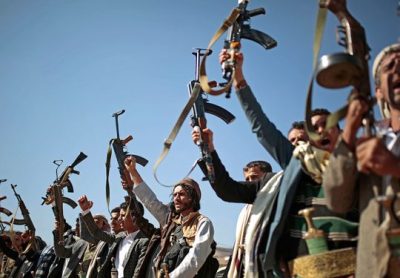Houthis Close to Victory in Yemen

All Global Research articles can be read in 51 languages by activating the “Translate Website” drop down menu on the top banner of our home page (Desktop version).
To receive Global Research’s Daily Newsletter (selected articles), click here.
Visit and follow us on Instagram at @crg_globalresearch.
***
The war appears to be moving to an end in one of Yemen’s major cities. After more than ten months of incessant fighting, the battle for the control of Ma’rib may be near to a positive conclusion for the rebels’ side. The city, whose historical, cultural, humanitarian, and economic importance is immense, could be the strategic key to a much greater conquest, so that the group that dominates Ma’rib will be about to winning the civil war in the entire country.
In recent statements, spokesmen for the Houthi movement have announced that the rebels’ conquest of the last territorial portions of the city of Ma’rib is only a matter of time. The region is still partially controlled by forces loyal to the government of Abdrabbuh Mansour Hadi, but the latest offensives launched by Houthis have completely changed the scenario in the region, allowing the rebels to advance towards near-complete dominance after conquering the Jabal al-Balaq al- Awsat mountain range – which allowed them a to establish privileged strategic position in order to view and access the southeastern portion of Ma’rib, generating successive victories.
However, as expected, the possibility of a Houthi victory has not been welcomed by Saudi coalition’s forces. After the rebels took control of the mountain range, Riyadh launched a series of brutal aerial bombardment attacks, aimed at hitting targets in all regions around Jabal al-Balaq al-Awsat. The attacks went beyond Ma’rib and encompassed the cities of Al Jawf and Sana’a, resulting in a yet uncertain number of deaths and injured people. There is, however, no information about any significant change in the Houthi control over the mountain range as a result of the attacks.
Indeed, the strategic defeat in Ma’rib will certainly have practically irreversible impacts for the Saudi coalition. In order to regain complete control of the region it would be required much more violent and frequent attacks, which would undoubtedly result in an immeasurable massacre, considering that Ma’rib is currently home to more than three million civil inhabitants, most of them displaced people born in other parts of Yemen and displaced by war. Furthermore, Ma’rib was the last fortress of Saudi power in northeast Yemen, so the current defeat means the surrender of an entire region to rebel control. In this sense, Muhammad Bukhaiti, spokesman of the Houthis, stated that “The defeat of the forces of aggression in Ma’rib means their defeat on the rest of the fronts (…) [so] decisive hours are close”.
To make the situation even more difficult for the Saudis, there is still the diplomatic crisis with the US, which prevents the Kingdom from quickly resupplying with weapons. The recent Saudi offensives in Ma’rib, Al Jawf and Sana’a appear to have exhausted much of Riyadh’s war arsenal, which is now weakened and in the midst of a severe supply crisis. Washington is the biggest arms supplier to the Saudis and the current diplomatic crisis really prevents this alliance from developing further.
It is true that Joe Biden failed to carry out his ideological plans to completely break the military alliance with the Saudis, as he had promised in February. The US continued to supply arms to the Kingdom, with, however, a pre-established condition for the Saudis to use such weapons only for exclusively defensive purposes – which has certainly not been fulfilled. However, the pressure on the American government is only increasing. Human rights defenders demand that Biden tighten measures against Riyadh, considering unacceptable the American involvement in a war with numerous humanitarian abuses being reported every day. On the other hand, there is a more pragmatic wing of the US Congress that supports the resumption of the normal arms trade as a way to counter the growing Iranian geopolitical influence in Yemen, considering that the Houthis are an ethnic group of Shia faith and with strong links with Tehran. In practice, the situation is tense and complicated for Biden, who has to choose between securing the support of his pro-human rights electorate or fighting Iran’s growing role in the Middle East.
For the future it is expected that Biden will adopt quiet stance and resolve the situation by maintaining the current figures of the arms trade with the Saudis, without significantly increasing or decreasing it, which obviously will not be enough for Riyadh to maintain its offensives in Yemen. On its part, the Kingdom will not give up on the war and will seek to diversify its sources of arms supply, mainly taking advantage of the partnership with South Africa in the drone trade. Indeed, the war in Yemen is likely to go on for a long time, but it may be near the end of its bloodiest days and certainly the Yemeni government has never been so weak and discredited.
*
Note to readers: Please click the share buttons above or below. Follow us on Instagram, @crg_globalresearch. Forward this article to your email lists. Crosspost on your blog site, internet forums. etc.
Lucas Leiroz is a researcher in Social Sciences at the Rural Federal University of Rio de Janeiro; geopolitical consultant.
Featured image is from https://see.news/

